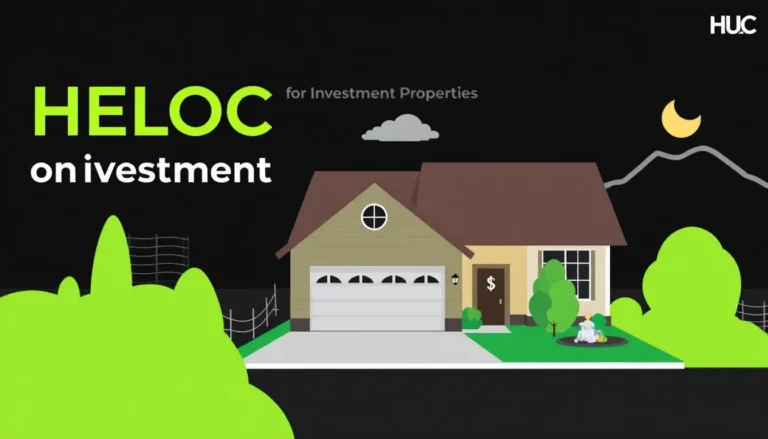Table of Contents
ToggleIn the world of real estate, cash flow is the lifeblood that keeps investors smiling and their bank accounts happy. Imagine owning a property that not only pays for itself but also throws off a little extra cash each month—like a friendly neighborhood ATM. That’s the magic of positive cash flow, and it’s what separates savvy investors from those who just like to play Monopoly.
What Is Real Estate Cash Flow?
Real estate cash flow refers to the net income generated from a property after all expenses are deducted. It acts as a critical indicator of investment performance.
Definition of Cash Flow
Cash flow in real estate encompasses all the income received from rental payments, security deposits, and other revenue streams minus the property’s operating expenses. Operating expenses include mortgage payments, property management fees, maintenance costs, and taxes. Positive cash flow signifies that income surpasses expenses, while negative cash flow indicates financial losses. Understanding cash flow helps investors assess whether a property generates sufficient profits or leads to economic strain.
Importance of Cash Flow in Real Estate
Cash flow holds significant importance in real estate investing. A property with positive cash flow provides financial stability and an ongoing income source. It sustains investor satisfaction, allowing for long-term planning and investment growth. Consistent cash flow can ease the burden of unexpected costs and debt obligations. Investors with a strong cash flow can reinvest profits, fund renovations, or purchase additional properties. Ultimately, managing cash flow plays a vital role in determining overall investment success and feasibility.
Factors Affecting Real Estate Cash Flow

Understanding factors that affect real estate cash flow helps investors make informed decisions. Numerous elements influence the net income generated from a property.
Rental Income
Rental income serves as a primary source of cash flow for real estate investors. It depends on location, property type, and market demand. Investment properties in high-demand areas typically attract higher rents compared to those in less desirable locations. Consistent occupancy rates also ensure steady rental income. Seasonal fluctuations might impact rental demand, requiring landlords to adjust pricing strategies. Occupancy rates ranging between 90% and 95% often indicate strong rental income potential. Regular evaluations of local market trends provide valuable insights into optimizing rental agreements.
Operating Expenses
Operating expenses directly influence cash flow by reducing net income. Expenses like property management fees, maintenance costs, insurance, and property taxes can add up significantly. Regular maintenance not only keeps tenants satisfied but also helps preserve property value. An effective budget tracking all expenses ensures there are no surprise costs. Keeping operating expenses below 35% of gross income often paves the way for better cash flow outcomes. Successful investors analyze costs to identify areas for potential savings without compromising property quality.
Financing Costs
Financing costs represent another significant factor impacting real estate cash flow. These costs include mortgage payments, interest rates, and loan terms. Lower interest rates usually translate to reduced monthly payments, improving overall cash flow. Investing in fixed-rate mortgages can offer stability against fluctuating rates over time. Additionally, financing options such as refinancing can optimize cash flow, especially during favorable market conditions. Lenders often require detailed income assessments, highlighting the importance of maintaining robust cash flow to secure financing. Understanding financing arrangements helps investors enhance their profit margins effectively.
Strategies to Improve Real Estate Cash Flow
Investors can implement several strategies to enhance cash flow from their properties. By focusing on increasing rental income, reducing operating expenses, and refinancing loans, they can significantly improve their financial performance.
Increasing Rental Income
Maximizing rental income directly boosts cash flow. Investors can adjust rental rates based on local market conditions, ensuring prices align with demand. Adding amenities like smart home technology or improved landscaping can also attract higher-paying tenants. Offering flexible lease terms may increase occupancy rates and appeal to various renters. Additionally, effective marketing strategies, such as professional photography and online listings, enhance visibility, driving more inquiries and leading to higher rental rates.
Reducing Operating Expenses
Cutting operating expenses plays a crucial role in improving cash flow. Regular maintenance can prevent costly emergency repairs, allowing for predictable budgeting. Investors should consider negotiating property management fees to lower costs. Energy-efficient upgrades, such as LED lighting and smart thermostats, not only reduce utility bills but also attract eco-conscious tenants. Reviewing multiple service providers and comparing quotes for essential services can uncover better deals without sacrificing quality.
Refinancing Loans
Refinancing loans presents another opportunity to enhance cash flow. Lowering the interest rate on existing mortgages can decrease monthly payments, resulting in immediate cash flow improvements. Investors may also consider extending the loan term to reduce monthly obligations further. Consolidating multiple loans into a single mortgage simplifies payment processes and may offer better terms. Monitoring market trends allows investors to capitalize on favorable refinancing opportunities that strengthen their financial position.
Common Mistakes to Avoid
Investors often face pitfalls that hinder their success in real estate cash flow. Avoiding these mistakes can significantly improve financial outcomes.
Underestimating Expenses
Underestimating expenses leads to financial shortfalls. Many investors overlook hidden costs such as maintenance, property taxes, and management fees. Not accounting for unexpected repairs can disrupt cash flow and strain budgets. Investors must also consider vacancy rates, which can fluctuate based on market changes. Effective budgeting is essential; accurate expense projections allow for informed decisions. Tracking all costs consistently helps prevent surprise expenses that can impact profitability. Utilizing software tools for property management can aid in maintaining a clear understanding of ongoing costs. Robust financial planning must reflect realistic expense estimates to ensure long-term cash flow stability.
Overestimating Rental Income
Overestimating rental income poses a common risk in real estate investing. Many investors set rental prices too high, expecting premium rent without validating market conditions. Failure to analyze current market trends and comparable rental properties leads to unrealistic expectations. This can result in prolonged vacancies, which negatively affect cash flow. Understanding demand in the specific area allows for more accurate pricing strategies. Regularly reviewing and adjusting rental rates based on occupancy levels enhances profitability. Investors should conduct thorough market research to align rental prices with current trends. Realistic income projections provide a solid foundation for successful cash flow management.
Understanding real estate cash flow is crucial for any investor aiming for long-term success. Positive cash flow not only ensures financial stability but also empowers investors to make informed decisions and adapt to market changes. By focusing on optimizing income and managing expenses effectively, investors can create a sustainable revenue stream that supports their financial goals.
Avoiding common pitfalls like underestimating expenses or overestimating rental income can significantly enhance cash flow. With the right strategies in place, real estate can become a reliable source of income, providing both immediate returns and long-term wealth accumulation. Ultimately, mastering cash flow is the key to thriving in the competitive world of real estate investing.




